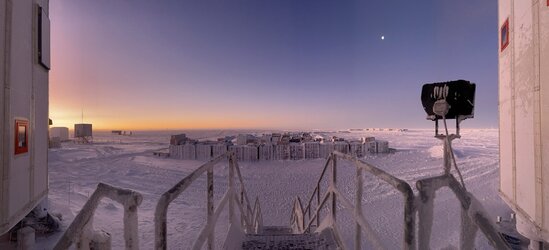Accept all cookies Accept only essential cookies See our Cookie Notice

About ESA
The European Space Agency (ESA) is Europe’s gateway to space. Its mission is to shape the development of Europe’s space capability and ensure that investment in space continues to deliver benefits to the citizens of Europe and the world.
Highlights
ESA - United space in Europe
This is ESA ESA facts Member States & Cooperating States Funding Director General Top management For Member State Delegations European vision European Space Policy ESA & EU Space Councils Responsibility & Sustainability Annual Report Calendar of meetings Corporate newsEstablishments & sites
ESA Headquarters ESA ESTEC ESA ESOC ESA ESRIN ESA EAC ESA ESAC Europe's Spaceport ESA ESEC ESA ECSAT Brussels Office Washington OfficeWorking with ESA
Business with ESA ESA Commercialisation Gateway Law at ESA Careers Cyber resilience at ESA IT at ESA Newsroom Partnerships Merchandising Licence Education Open Space Innovation Platform Integrity and Reporting Administrative Tribunal Health and SafetyMore about ESA
History ESA Historical Archives Exhibitions Publications Art & Culture ESA Merchandise Kids Diversity ESA Brand CentreLatest
Space in Member States
Find out more about space activities in our 23 Member States, and understand how ESA works together with their national agencies, institutions and organisations.
Science & Exploration
Exploring our Solar System and unlocking the secrets of the Universe
Go to topicAstronauts
Missions
Juice Euclid Webb Solar Orbiter BepiColombo Gaia ExoMars Cheops Exoplanet missions More missionsActivities
International Space Station Orion service module Gateway Concordia Caves & Pangaea BenefitsLatest
Space Safety
Protecting life and infrastructure on Earth and in orbit
Go to topicAsteroids
Asteroids and Planetary Defence Asteroid danger explained Flyeye telescope: asteroid detection Hera mission: asteroid deflection Near-Earth Object Coordination CentreSpace junk
About space debris Space debris by the numbers Space Environment Report In space refuelling, refurbishing and removingSafety from space
Clean Space ecodesign Zero Debris Technologies Space for Earth Supporting Sustainable DevelopmentLatest
Applications
Using space to benefit citizens and meet future challenges on Earth
Go to topicObserving the Earth
Observing the Earth Future EO Copernicus Meteorology Space for our climate Satellite missionsCommercialisation
ESA Commercialisation Gateway Open Space Innovation Platform Business Incubation ESA Space SolutionsLatest
Enabling & Support
Making space accessible and developing the technologies for the future
Go to topicBuilding missions
Space Engineering and Technology Test centre Laboratories Concurrent Design Facility Preparing for the future Shaping the Future Discovery and Preparation Advanced Concepts TeamSpace transportation
Space Transportation Ariane Vega Space Rider Future space transportation Boost! Europe's Spaceport Launches from Europe's Spaceport from 2012Latest

Isolate in Antarctica, for science
Thank you for liking
You have already liked this page, you can only like it once!
Applications are now open for the role of ESA-sponsored research medical doctor at Concordia research station in Antarctica for the 2023 winter over season. Do you have a medical degree, an interest in space exploration and the fortitude to spend almost a year in isolation in the world’s largest desert? Apply today for this unique post.
The blank backdrop
Located at the mountain plateau called Dome C in Antarctica, the French-Italian base is one of only three that is inhabited all year long.
Between the extreme altitude – 3233 m above sea level means the crew experience chronic hypobaric hypoxia or lack of oxygen in the brain – four months of total darkness during the winter, and temperatures as low as –80°C, the base is fertile ground to research the effects of isolated, confined, and extreme environments on the human body and mind.
For this reason, each year ESA sponsors a medical doctor to oversee biomedical experiments at the base.
The 2021 winter over doctor, Nick Smith from the UK, is on his way back home after a successful year in Antarctica. Taking his place is Hannes Hagson from Sweden. He arrived with his crew of 12 in early November and will oversee research such as how isolation changes people’s brains, sleep and their immune system.
Summer in December
Concordia is currently hosting the summer season of researchers. About 60 researchers flock to the station to check equipment, set up sensors and run experiments for a few weeks. The last of the summer crew is expected to leave in February, and then the isolation begins. The 13-member crew will spend the next nine months with only each other for company as the sun begins to set, returning after four months.
If you think you have what it takes, apply for the position of ESA research doctor by 21 January 2022.
Good luck to Hannes and the DC 18 crew! Follow Hannes’ year on the Chronicles from Concordia blog.
-
CREDIT
ESA/IPEV/PNRA-N.Smith -
LICENCE
ESA Standard Licence

Concordia in the Dark

Dark Concordia

Concordia sunrise

Telling sunset















 Germany
Germany
 Austria
Austria
 Belgium
Belgium
 Denmark
Denmark
 Spain
Spain
 Estonia
Estonia
 Finland
Finland
 France
France
 Greece
Greece
 Hungary
Hungary
 Ireland
Ireland
 Italy
Italy
 Luxembourg
Luxembourg
 Norway
Norway
 The Netherlands
The Netherlands
 Poland
Poland
 Portugal
Portugal
 Czechia
Czechia
 Romania
Romania
 United Kingdom
United Kingdom
 Slovenia
Slovenia
 Sweden
Sweden
 Switzerland
Switzerland
























